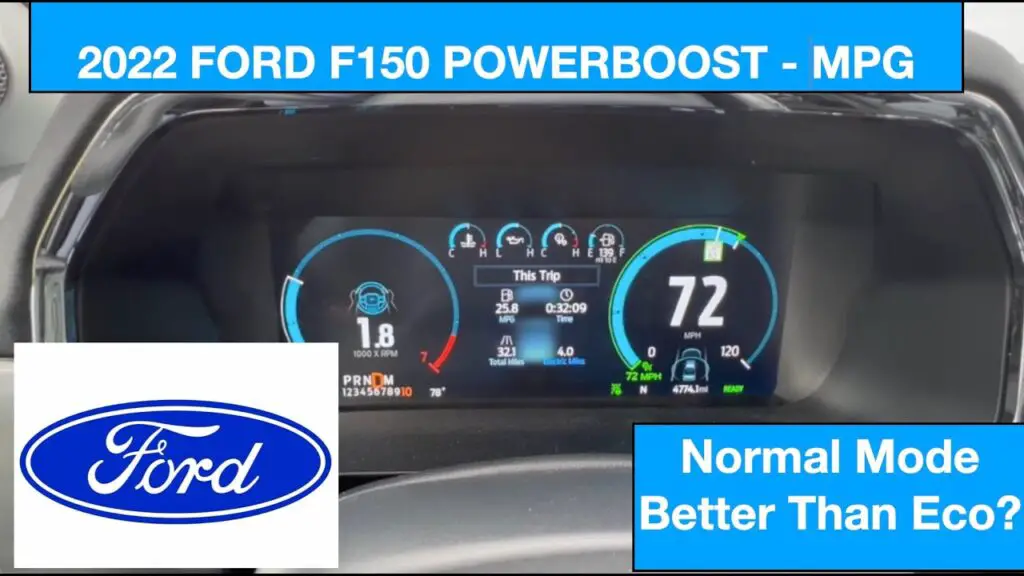The 2013 Ford F150 Ecoboost is a popular truck. But many owners face issues.
Understanding these problems can help you make informed decisions. The Ecoboost engine promised power and efficiency. Yet, many users report recurring problems. Issues like engine misfires and turbocharger failures are common. Knowing these problems can save you time and money.
This blog post will explore the most reported problems with the 2013 Ford F150 Ecoboost. You’ll learn about the causes and potential fixes. Whether you’re an owner or considering buying one, this guide will be useful. Stay tuned to discover what you need to know about the 2013 Ford F150 Ecoboost.
Engine Performance Issues
The 2013 Ford F150 Ecoboost has been a popular choice for many. Yet, some owners report engine performance issues. These problems can affect the truck’s reliability and drivability. Let’s take a closer look at two main issues: power loss and turbo lag.
Power Loss
One common complaint is power loss. This can happen suddenly while driving. It can be frustrating and dangerous. Several factors may contribute to this issue:
- Faulty spark plugs
- Clogged fuel injectors
- Bad fuel pump
Regular maintenance can help prevent these problems. Always check and replace spark plugs and fuel filters as needed. Keep an eye on the fuel system to ensure it is clean and functioning well.
Turbo Lag
Turbo lag is another issue drivers may encounter. It refers to a delay in power delivery. This happens when you press the gas pedal and the engine takes a moment to respond. The main causes include:
- Worn turbocharger
- Dirty air filters
- Issues with the wastegate
To reduce turbo lag, keep your air filters clean. Ensure that the turbocharger is in good condition. Regular inspection can help detect and fix any wastegate problems early. By taking these steps, you can improve the engine’s response time.
Addressing these engine performance issues ensures your 2013 Ford F150 Ecoboost runs smoothly. Regular maintenance and timely repairs are key.

Credit: www.motorbiscuit.com
Fuel System Problems
The 2013 Ford F150 Ecoboost is known for its performance and power. But, it has some fuel system problems. These issues can affect the truck’s performance and reliability. Below, we will discuss two main problems: fuel economy and fuel injector failures.
Fuel Economy
Many owners of the 2013 Ford F150 Ecoboost report poor fuel economy. This truck was advertised for its fuel efficiency. But, real-world results often disappoint. Drivers notice that the truck consumes more fuel than expected. This can lead to higher fuel costs over time.
Here is a table comparing the advertised fuel economy vs. the actual fuel economy:
| Condition | Advertised MPG | Actual MPG |
|---|---|---|
| City Driving | 16 MPG | 14 MPG |
| Highway Driving | 22 MPG | 19 MPG |
As you can see, there is a significant difference. This discrepancy can be frustrating for owners. They expect better fuel performance from their trucks.
Fuel Injector Failures
Another issue with the 2013 Ford F150 Ecoboost is fuel injector failures. Fuel injectors are crucial for the engine’s performance. They deliver fuel to the engine’s cylinders. Faulty fuel injectors can cause several problems:
- Engine misfires
- Rough idling
- Reduced power
- Poor acceleration
These symptoms can be annoying and costly to fix. Replacing fuel injectors can be an expensive repair. Regular maintenance can help detect these issues early. But, sometimes, the problem occurs without warning.
Here are some tips to avoid fuel injector failures:
- Use high-quality fuel
- Keep the fuel system clean
- Perform regular maintenance checks
By following these tips, you can help extend the life of your fuel injectors. Proper care of the fuel system is essential for the truck’s overall performance.
Transmission Troubles
The 2013 Ford F150 Ecoboost has had its share of transmission troubles. Owners have reported several issues, which can affect the truck’s performance. Among these, slipping gears and hard shifting are common problems. Let’s dive deeper into these issues.
Slipping Gears
Slipping gears is a major concern for 2013 Ford F150 Ecoboost owners. This issue occurs when the transmission shifts gears unexpectedly. The truck may lose power or fail to accelerate properly. This can be dangerous, especially during high-speed driving. Regular maintenance and timely inspections can help identify and address this problem early.
Hard Shifting
Another frequent complaint involves hard shifting. Drivers experience jerky or delayed gear changes. This can be uncomfortable and potentially damage the transmission. Hard shifting often results from transmission fluid issues or worn-out components. Addressing this problem promptly can prevent further damage and ensure smoother driving.
Electrical System Failures
The 2013 Ford F150 Ecoboost has a powerful engine. But some owners report electrical issues. These problems can be a real headache. They can affect the truck’s performance and reliability.
Electrical system failures in the 2013 F150 Ecoboost often center around the battery and sensors. Let’s dive into these issues in detail.
Battery Drain
One common complaint is the battery draining quickly. Owners often find their battery dead, even when the truck is off. This can leave you stranded and frustrated.
Several factors can cause battery drain. A faulty alternator or electrical short are common culprits. Sometimes, accessories or aftermarket devices draw power when the truck is off.
To fix battery drain, check the alternator and look for shorts in the wiring. Disconnect any non-essential devices. Regular battery checks can help you avoid this problem.
Faulty Sensors
Another issue with the 2013 F150 Ecoboost is faulty sensors. These sensors monitor various systems in the truck. When they fail, the truck may not run correctly.
Common sensors that fail include the oxygen sensor and mass airflow sensor. When these sensors fail, the check engine light often comes on. You might also notice poor performance or bad fuel economy.
Replacing faulty sensors can be costly. But it is necessary to keep your truck running smoothly. Regular maintenance and inspections can help catch sensor issues early.
Cooling System Concerns
The 2013 Ford F150 Ecoboost is a popular truck, but it has some issues. One of the common problems is with its cooling system. These problems can affect the truck’s performance and durability. Let’s look at two main areas: overheating and coolant leaks.
Overheating
Overheating is a significant issue in the 2013 Ford F150 Ecoboost. The engine may get too hot. This can cause severe damage. The radiator often struggles to cool the engine. The thermostat might fail, leading to high temperatures.
Symptoms of overheating include:
- High temperature gauge readings
- Steam from the hood
- Strange noises from the engine
Regular maintenance can help prevent this. Check the radiator and thermostat often. Replace them if needed.
Coolant Leaks
Another common problem is coolant leaks. These leaks can cause the engine to overheat. They can also lead to coolant loss.
Signs of a coolant leak include:
- Puddles under the truck
- Low coolant levels
- Sweet smell from the engine bay
Leaks often come from the radiator or hoses. It’s crucial to fix these leaks quickly. Regularly check coolant levels and look for signs of leaks.
| Problem | Signs | Solution |
|---|---|---|
| Overheating | High temperature gauge, steam, noises | Check and replace radiator and thermostat |
| Coolant Leaks | Puddles, low coolant, sweet smell | Inspect and repair radiator and hoses |

Credit: www.vehiclehistory.com
Turbocharger Issues
The 2013 Ford F150 Ecoboost is known for its powerful performance. Yet, many owners face turbocharger issues. These problems can impact the truck’s power and efficiency. Understanding these issues can help in maintaining your vehicle. Let’s dive into some common turbocharger problems.
Turbo Failure
Turbo failure is a significant concern for many 2013 Ford F150 Ecoboost owners. Turbos can fail due to several reasons. Here are a few common causes:
- Oil contamination
- Poor maintenance
- Clogged oil lines
When the turbo fails, you might notice a loss of power. There could also be excessive smoke from the exhaust. Regular maintenance can prevent most of these issues. Ensure oil changes are done on time. Using high-quality oil also helps.
Wastegate Problems
The wastegate controls the turbo’s boost pressure. Wastegate problems can lead to several issues. Here are some signs of wastegate problems:
- Overboosting
- Underboosting
- Engine knocking
When the wastegate fails, the engine might not perform optimally. You could experience irregular acceleration. A faulty wastegate might also cause the engine to run hotter. It’s essential to check the wastegate during regular maintenance. Replacing a faulty wastegate can restore the truck’s performance.
Exhaust System Problems
The 2013 Ford F150 Ecoboost is a popular pickup truck known for its power and efficiency. Yet, some owners face exhaust system problems. These issues can affect the truck’s performance and fuel economy. Let’s explore the common problems related to the exhaust system.
Exhaust Leaks
Exhaust leaks are a frequent issue in the 2013 Ford F150 Ecoboost. Leaks can occur in various parts of the exhaust system. They often happen where the exhaust manifold meets the engine. This can lead to a loud noise and reduced engine performance.
Common signs of an exhaust leak include:
- Loud engine noise
- Decreased fuel efficiency
- Unusual odors
Addressing exhaust leaks quickly is important. Ignoring them can cause further damage to the engine.
Catalytic Converter Failures
The catalytic converter is vital in reducing harmful emissions. In the 2013 Ford F150 Ecoboost, catalytic converter failures are not uncommon. These failures can trigger the check engine light and lead to poor engine performance.
Symptoms of a failing catalytic converter include:
- Check engine light
- Reduced fuel efficiency
- Poor acceleration
Replacing a faulty catalytic converter is necessary. It ensures the vehicle meets emission standards and runs efficiently.
Maintenance Tips
Maintaining your 2013 Ford F150 Ecoboost is key to avoiding common problems. Regular maintenance can save you from costly repairs and ensure your truck runs smoothly. Here are some essential tips to keep your vehicle in top shape.
Regular Inspections
Performing regular inspections on your 2013 Ford F150 Ecoboost is crucial. Check the engine, brakes, and tires frequently. These are the most common areas where problems occur.
- Inspect the engine oil and replace it every 5,000 miles.
- Check the brake pads and rotors for wear and tear.
- Ensure the tire pressure is at the recommended level.
- Look for any signs of leaks or unusual noises.
Preventive Measures
Taking preventive measures helps extend the life of your truck. Addressing small issues early can prevent bigger problems down the road.
- Use high-quality fuel to maintain engine performance.
- Replace the air filter regularly to ensure proper airflow.
- Keep the coolant levels topped up to avoid overheating.
- Check and replace the spark plugs as needed.
Regular maintenance and inspections can keep your 2013 Ford F150 Ecoboost running smoothly. By following these tips, you can avoid common problems and enjoy a reliable ride.

Credit: www.youtube.com
Frequently Asked Questions
What Are Common Issues With The 2013 Ford F150 Ecoboost?
Turbocharger problems, timing chain issues, and carbon buildup are common issues with the 2013 Ford F150 Ecoboost.
How Reliable Is The 2013 Ford F150 Ecoboost?
The 2013 Ford F150 Ecoboost is generally reliable but may have some engine and turbocharger issues.
What Symptoms Indicate Turbocharger Problems In The F150?
Loss of power, whining noise, and excessive smoke are signs of turbocharger problems in the F150.
How Do You Fix Timing Chain Issues In The 2013 F150?
Timing chain issues often require professional repair. It’s best to consult a mechanic for proper fixes.
Does Carbon Buildup Affect The 2013 Ford F150 Ecoboost?
Yes, carbon buildup can affect performance and fuel efficiency in the 2013 Ford F150 Ecoboost.
What Is The Best Way To Maintain A 2013 F150 Ecoboost?
Regular oil changes, using quality fuel, and periodic check-ups help maintain a 2013 F150 Ecoboost.
Conclusion
Owning a 2013 Ford F150 Ecoboost can be rewarding, but issues exist. Understanding common problems helps you stay prepared. Regular maintenance and timely repairs are crucial. This reduces the risk of severe damage. Many owners still enjoy their trucks despite these challenges.
Research and proper care ensure your F150 performs well. Always keep an eye out for warning signs. Address issues early to prolong your truck’s life. This keeps your ride smooth and reliable.
- What Is Ford Pco: Unlocking the Benefits for Drivers - December 22, 2024
- F150 Eco Mode Vs Normal: Optimize Your Truck’s Performance - December 22, 2024
- F150 Depreciation Calculator: Maximize Your Truck’s Resale Value - December 22, 2024



